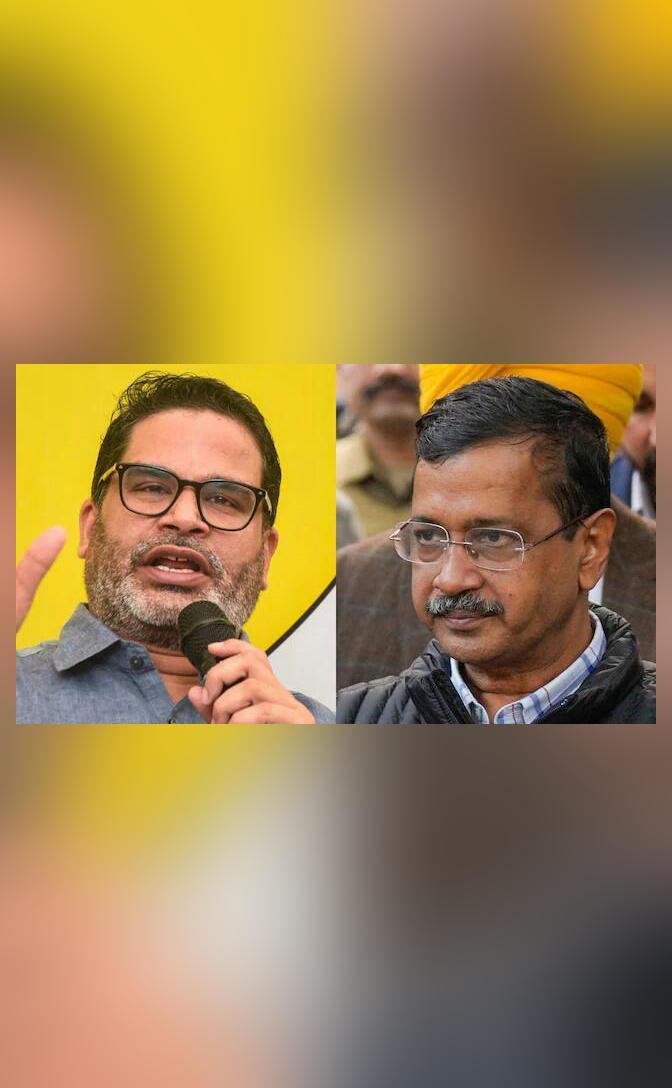
Prashant Kishor Lists Reasons Why Kejriwal & AAP Lost in Delhi Elections
The recent Delhi Assembly elections saw a stunning defeat for the Aam Aadmi Party (AAP) led by Arvind Kejriwal, who has been the Chief Minister of Delhi since 2013. AAP managed to win only 62 seats, a significant drop from its previous tally of 67. The party’s loss has been attributed to several factors, including the 10-year anti-incumbency factor, Kejriwal’s fluctuating stance on joining and exiting the INDI Alliance, and his decision to resign as Delhi CM after being granted bail in the liquor policy case.
In an interview with News18, Prashant Kishor, a renowned politician and former political strategist, shed light on the reasons behind AAP’s defeat. Kishor, who has worked with several political parties, including the Bharatiya Janata Party (BJP), attributed AAP’s loss to Kejriwal’s “big strategic mistake” of resigning as Delhi CM after being granted bail in the liquor policy case.
According to Kishor, Kejriwal’s resignation was a mistake because it allowed the BJP to project him as an accused in a corruption case. Kishor said, “When you resign after being granted bail, you are giving a message that you are an accused, and that is a big strategic mistake.” He added that if Kejriwal had resigned after being arrested, it would have been a different matter, as it would have shown that he was willing to take responsibility for his actions.
Kishor also pointed out that the 10-year anti-incumbency factor played a significant role in AAP’s defeat. He said, “In Delhi, the anti-incumbency factor is very strong. People are tired of the same government, and they want a change.” Kishor attributed this factor to the fact that AAP has been in power in Delhi for over a decade, and people are looking for a fresh face and a change in governance.
Another factor that hurt Kejriwal’s credibility was his fluctuating stance on joining and exiting the INDI Alliance. Kishor said, “Kejriwal’s stand on the INDI Alliance was confusing, and it hurt his credibility. People did not know what he wanted to do, and it created confusion among voters.” Kishor added that Kejriwal should have taken a clear stand on the issue and communicated it effectively to the people.
Kishor also pointed out that AAP’s campaign was lackluster, and the party failed to connect with the voters on issues that mattered to them. He said, “AAP’s campaign was not strong, and it did not connect with the voters on issues like education, healthcare, and employment.” Kishor added that AAP’s focus on negative campaigning, such as attacking the BJP and the Congress, did not resonate with the voters.
Kishor also criticized AAP’s decision to focus on issues like the “freebies” and “exemptions” that it had provided to the people of Delhi. He said, “AAP’s focus on freebies and exemptions was not a sustainable strategy, and it did not resonate with the voters.” Kishor added that AAP should have focused on issues like education, healthcare, and employment, which are important to the people of Delhi.
In conclusion, Prashant Kishor’s views on the reasons behind AAP’s defeat in the Delhi Assembly elections are insightful and provide a nuanced understanding of the factors that contributed to the party’s loss. According to Kishor, Kejriwal’s decision to resign as Delhi CM after being granted bail in the liquor policy case, the 10-year anti-incumbency factor, and AAP’s lackluster campaign were some of the key reasons behind the party’s defeat.
It is worth noting that AAP’s defeat in the Delhi Assembly elections has sent shockwaves across the political landscape, and the party is now facing an uncertain future. While Kejriwal has accepted responsibility for the party’s loss, it remains to be seen how AAP will regroup and revamp its strategy to regain the trust of the people of Delhi.





